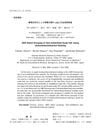66 citations,
November 1997 in “Nutrition” One-third of patients on home nutrition had micronutrient deficiencies, with iron deficiency being most common, but serious issues were rare.
[object Object] August 2021 in “Indian dermatology online journal” A young boy with a rare skin and nail condition improved significantly with simple topical treatments.
 2 citations,
January 2019 in “Elsevier eBooks”
2 citations,
January 2019 in “Elsevier eBooks” Biotin supplements are unnecessary for most people but may help with certain conditions like biotin deficiency, brittle nails, and some hair loss.
 4 citations,
March 2006 in “Journal of renal nutrition”
4 citations,
March 2006 in “Journal of renal nutrition” Dialysis patients benefit from water-soluble vitamins but need careful management to avoid risks.
 January 2024 in “Biomedical journal of scientific & technical research”
January 2024 in “Biomedical journal of scientific & technical research” Vitamins A, B7, C, D, and E are essential for healthy hair growth and preventing damage.
 5 citations,
March 2021 in “International Journal of Dermatology”
5 citations,
March 2021 in “International Journal of Dermatology” Biotin supplementation during isotretinoin treatment for acne may help maintain skin hydration and improve hair growth.
[object Object] June 2021 in “Current developments in nutrition” The LustrivaTM BH-002 supplement and hair serum improved women's hair, skin, and nail health and appearance.
3 citations,
January 2021 in “Molecular genetics & genomic medicine” The study found two new mutations in a Chinese patient with severe biotinidase deficiency.
 May 2021 in “Zenodo (CERN European Organization for Nuclear Research)”
May 2021 in “Zenodo (CERN European Organization for Nuclear Research)” Biotin may help hair and nails grow.
 71 citations,
January 2016 in “International Journal of Trichology”
71 citations,
January 2016 in “International Journal of Trichology” Biotin deficiency is not a major cause of hair loss in women, so biotin supplements are not likely to be an effective hair loss treatment.
 June 2023 in “JAAD international”
June 2023 in “JAAD international” Patients with skin of color are more likely to use supplements for hair loss than Caucasian patients, but the effectiveness of these supplements is uncertain and they can be expensive.
72 citations,
October 1988 in “Archives of Disease in Childhood” Biotin treatment improves symptoms of biotinidase deficiency, but some neurological damage may be permanent.
 January 1983 in “Journal of The American Academy of Dermatology”
January 1983 in “Journal of The American Academy of Dermatology” The book is a valuable resource for understanding hair and scalp problems but could be updated with more information on certain conditions.
December 2020 in “Dermatology practical & conceptual” Trichoscopy helped diagnose a teenage girl's hair loss as monilethrix.
4 citations,
April 2018 in “The journal of pediatrics/The Journal of pediatrics” A 6-year-old girl's inability to grow her hair long was due to Loose Anagen Hair Syndrome, which causes hair to shed easily and may improve with age.
1 citations,
November 2022 in “International journal of trichology” A girl with a rare skin condition improved after one month of treatment with acitretin.
2 citations,
March 2020 in “International journal of dermatology and clinical research” Microneedling helps hair growth, with hair multivitamins showing slightly better results than minoxidil.
 December 2022 in “American journal of medical genetics. Part A”
December 2022 in “American journal of medical genetics. Part A” A person got uncombable hair syndrome from two copies of chromosome 1 from their mother.
May 2021 in “Research journal of topical and cosmetic sciences” TrichovitalsTM improved skin, hair, and nail health in adults after 12 weeks.
 1 citations,
November 2016 in “Congenital Anomalies”
1 citations,
November 2016 in “Congenital Anomalies” Get head MRI for babies with achondroplasia early, use free immunoglobulin light chains to detect certain neurodevelopmental disorders, and video calls work for speech therapy in patients with facial anomalies.
 June 2024 in “Skin Appendage Disorders”
June 2024 in “Skin Appendage Disorders” Both PRP and MZT treatments can significantly improve hair growth in patients with androgenetic alopecia.
 24 citations,
July 2019 in “Journal of Obstetrics and Gynaecology”
24 citations,
July 2019 in “Journal of Obstetrics and Gynaecology” The combination therapy improved PCOS symptoms in both obese and non-obese women, with weight loss in the obese group.
 9 citations,
January 1959 in “The journal of nutrition/The Journal of nutrition”
9 citations,
January 1959 in “The journal of nutrition/The Journal of nutrition” Higher potassium intake may protect against hair loss and liver fat in lysine-deficient rats.
 January 2010 in “Nihon Hou Kagaku Gijutsu Gakkaishi”
January 2010 in “Nihon Hou Kagaku Gijutsu Gakkaishi” The modified staining method can determine the ABO blood group of hair samples accurately.
Instagram ads for skin, hair, and nail supplements often make broad health claims without clear ingredient information, and are not FDA-regulated.
2 citations,
October 2018 in “Skin appendage disorders” A boy's hair that was frizzy and hard to comb returned to normal after 9 months, possibly due to genetic factors.
5 citations,
July 2018 in “Skin appendage disorders” Sunscreen spray on the scalp may be linked to a type of scarring hair loss.
 1 citations,
April 2021 in “The journal of investigative dermatology/Journal of investigative dermatology”
1 citations,
April 2021 in “The journal of investigative dermatology/Journal of investigative dermatology” mTORC1 activity is important for hair growth and color, and targeting it could help treat hair loss and greying.
 20 citations,
January 2009 in “International Journal of Dermatology”
20 citations,
January 2009 in “International Journal of Dermatology” Hair loss in Clouston's syndrome improved with minoxidil and tretinoin treatment.
 December 2020 in “Revista da Sociedade Portuguesa de Dermatologia e Venereologia”
December 2020 in “Revista da Sociedade Portuguesa de Dermatologia e Venereologia” The document's conclusion cannot be summarized because the content is not accessible or understandable.
















